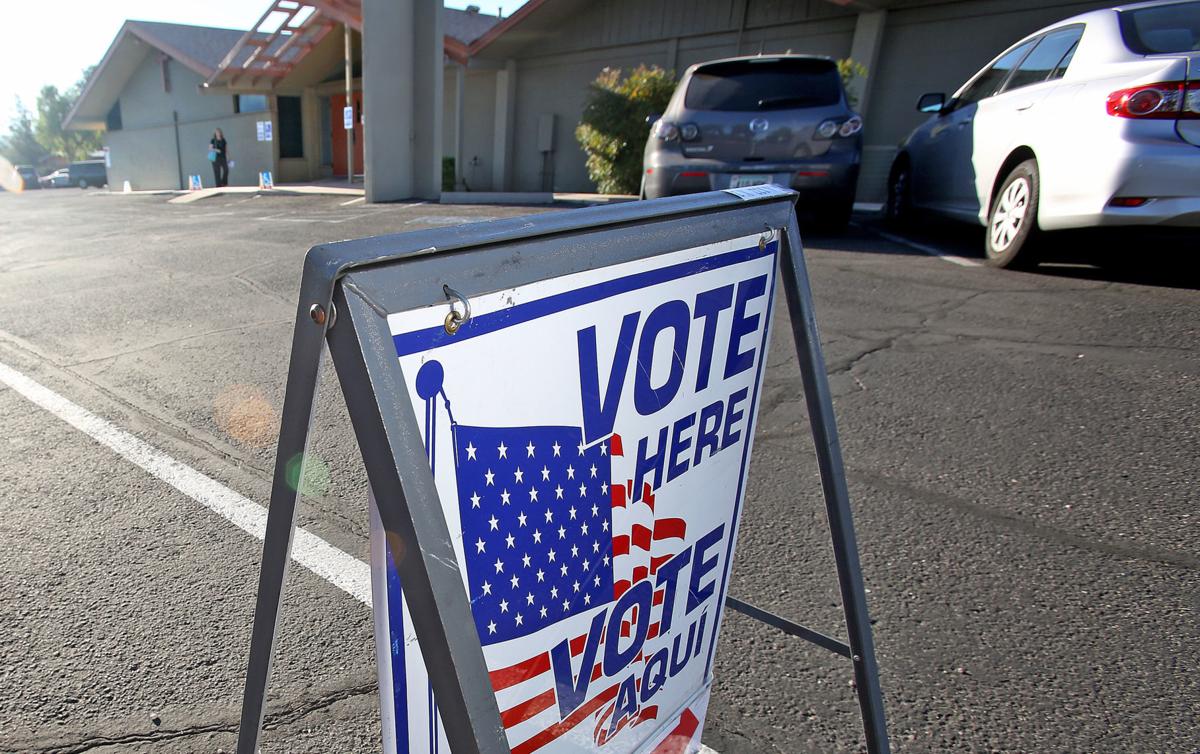PHOENIX — A federal judge upheld an Arizona law that makes it a felony to bring someone else’s early ballot to a polling place.
In an extensive ruling this week, Judge Douglas Rayes said there’s scant evidence the 2016 law will impose a hardship. While a majority of Arizonans now vote with early ballots, he said the vast majority manage to get them turned in without the help of outsiders whose activities are now a crime.
The measure was approved by the Republican-controlled Legislature and signed by Gov. Doug Ducey on the claim that limiting who can handle someone’s ballot will prevent voter fraud. In fact, the judge said, there has “never been a case of voter fraud associated with ballot collection charged in Arizona.” But he added, “The Legislature need not wait until a problem occurs to take proactive steps it deems appropriate.”
He said challengers, led by the Arizona Democratic Party, presented no evidence that the law is more likely to affect minorities than any other voter.
Lawyers for the Arizona Democratic Party and the Democratic National Committee already filed a notice they intend to appeal.
In his 83-page ruling, Rayes also rebuffed the challengers’ bid to force counties to count the votes of those who cast their ballots at the wrong polling place. Here, too, the judge said Arizona law requiring people to vote where they’re assigned or risk having their votes disregarded creates no unconstitutional hardships.
The first part of the lawsuit is aimed at a law that allows judges to impose a presumptive one-year prison term and potential $150,000 fine for the practice by civic and political groups of going out to see if people remembered to return the early ballots they had been sent. If they had not, group members would offer to take them to the polling place themselves.
The law does not apply to family members, those living in the same household or certain caregivers who provide assistance to voters in various institutions.
Until the 2016 law, both major parties had engaged in various forms of what has been called “ballot harvesting.” But it was the Democrats and their political allies who were regular practitioners, going out and canvassing neighborhoods, particularly in Democratic areas, in what amounted to “get-out-the-vote” efforts.
Republican lawmakers said that leads to fraud — or at least the potential of it — though they presented no actual evidence. “What is indisputable is that many people believe it’s happening,” Rep. J.D. Mesnard, R-Chandler, who is now House speaker, said then.
The partisan nature of the bill also was pointed up when Secretary of State Michele Reagan spoke at the annual Conservative Political Action Conference earlier that year, before the bill was approved.
Reagan decried what she called an “outrageous loophole” in the law that would make it easy to “cheat.” And Reagan, a Republican, said it is “the radical left who uses ballot harvesting.”
Rayes said the motives of lawmakers matter only if their aim is to suppress minority voting, something he said the Democratic challenges did not prove. Anything else, he said, is legally irrelevant.
“Partisan motives are not necessarily racial in nature, even though racially polarized voting can sometimes blur the lines,” the judge wrote. “That some legislators and proponents harbored partisan interests, rather than racially discriminatory motives, is consistent with Arizona’s history of advancing partisan objectives with the unintended consequences of ignoring minority interests.”
On the other side of the equation, Rayes said many supporters of the measure acted to bring mail-ballot security in line with in-person voting security, where those who show up on election day have to present proof of identity.





